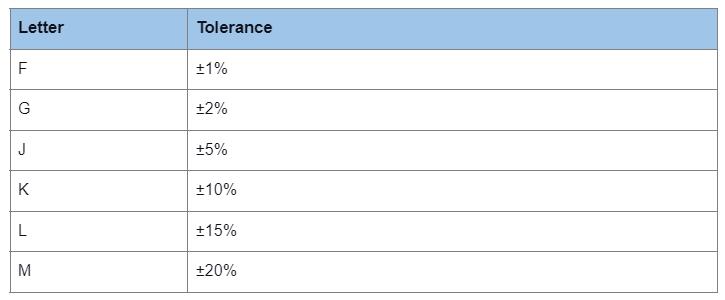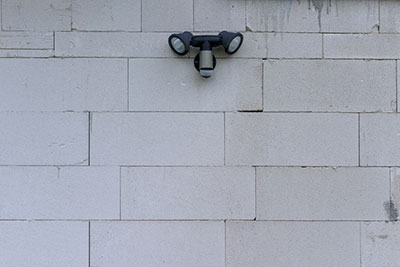The continuous advancement of small-scale electronics has forced most PCB fabricators and assemblers to include more SMD components in circuit boards. Usually, these components are smaller than their THC counterparts because they have tiny or no leads.However, SMD components are continuously evolving, and it is vital to identify the different parts available in the market today. In this article, we have created a complete guide for SMD component identification to assist in distinguishing the various components.
Contents
- What are SMD Components?
- Availability of Different Types of SMD Components
- Passive SMD Components
- Tubular Passive SMD Components for SMT
- Active SMD Components List
- Active SMT Components (Plastic Packages)
- SMD Components list and SMD Components Identification
- SMD Components Identification: Chip Resistors
- Identify Network Resistor
- SMD Components Identification: Capacitors
- Identify SMD Inductors
- Identify SMD Transformers
- SMD Components Identification: Diodes and Triodes
- Identify SMD ICs
- SMD Components Identification: Crystal Oscillators
- Identify SMD Connectors
- SMD Components Identification: Button Switches
- OurPCB: A One-Stop Source for SMD Components Sourcing and PCB Assembly
- Summary
What are SMD Components?
Surface Mount Devices (SMD) are components for mounting on Surface Mount Technology (SMT) circuit boards. All SMDs work in tandem to make up an operational circuit. Compared to Through Hole Components (THC), SMDs take up less space. Also, they are easier to mass solder and are available in a wide variety.
A PCB with SMD components
Special Offer: Get $100 off your order!
Email [email protected] to get started!
Availability of Different Types of SMD Components
Although surface mount technology has matured, it is still evolving, and new packages keep popping up. Currently, the available SMD electronic components include the following.
Passive SMD Components
These components primarily include capacitors (tantalum and monolithic ceramic capacitors) and resistors (discrete and thick film resistors). Generally, they are cylindrical or rectangular, and their mass is roughly 10X lower than the through-hole types.

A ceramic SMD capacitor
The trend in electronics is shrinkage, but these components are available in various sizes to meet the needs of the industry.
Tubular Passive SMD Components for SMT
Also known as Metal Electrode Leadless Faces (MELFs), tubular passive SMDs are devices used for diodes, tantalum & ceramic capacitors, jumpers, and resistors. As the name suggests, they are cylindrical with metal caps for soldering.
Their cylindrical shape implies there's no need to place resistors with resistive elements away from the board surface. Also, MELFs are affordable and color-coded for values. MLL 41 and MLL 34 codes identify MELF diodes, while 1206, 0805, 2309, and 1406 identify MELF resistors.
Active SMD Components List
Surface-mount packages (active and passive) come in various categories that include the following.
(LCCC) Leadless Ceramic Chip Carriers
Instead of leads, these chip carriers feature groove-shaped, gold-plated terminations called castellations. These terminations provide a shorter signal path that enables higher operating frequencies.
(CLCC) Ceramic Leaded Chip Carriers (Pre- and Post-leaded)
Ceramic Leaded Chip Carriers come in pre-leaded and post-leaded types. The former features Kovar leads or copper alloys attached by the manufacturer. However, the user is the one to fix leads to the terminations (castellations) in the post-leaded type.
Active SMT Components (Plastic Packages)
Ceramic packages are not that cheap. Therefore, they are ideal for military applications. However, the plastic variety is more affordable, making it suitable for non-military applications where hermiticity isn't required. They include small-outline transistors, J-packages & integrated circuits, plastic leaded chip carriers, BGA components, and fine pitch SMD packages.
SMD Components list and SMD Components Identification
The most commonly used SMD parts and their identification include the following.
SMD Components Identification: Chip Resistors
Among all surface mount devices, the chip resistor is the most commonly used component on SMT PCBs. Resistors help limit the current passing through, and there are two ways of indicating the resistance value.
The first is in Arabic numbers. Here, the first two digits show the absolute resistance value, while the last number indicates the power of 10. For instance, 472 means 4700Ω (47 x 10^2), while 105 means 1000000Ω (10 x 10^5).
On the other hand, the second method combines Arabic numbers and R. The number section indicates the whole number resistance value, while the R section shows the fractional resistance value. For instance, R25 means 0.25Ω, while 20R6 means 20.6Ω
Identify Network Resistor
Network resistors are high-grade ceramic chips with metal electrodes inside on each end for contacting the thick film resistive element. Usually, this chip packs multiple resistors with similar parameters and is ideal for digital memory circuits. In addition, their resistor value identification is identical to chip resistors.
SMD Components Identification: Capacitors
SMD capacitors are usually rectangular blocks containing two metal pieces separated by an insulator. Their purpose is to store energy, and the unit of capacitance is Farad (F). However, this unit is too big for SMD capacitors. Therefore, we mostly use μF, nF, or pF.
- 1F = 1000000μF
- 1μF = 1000nF
- 1nF = 1000pF

SMD capacitors
There are two ways of indicating the capacitance value. The first method directly indicates the capacitance and working voltage, such as 20μF/25V.
The second is by using Arabic numbers and the working voltage. For instance, 106 means 10 x 10^6pF = 10μF.
Capacitors also have a letter on the value to denote tolerance. They include the following.

Identify SMD Inductors
These inductors are the basic surface mount components that convert electrical energy to magnetic energy and store it. They consist of an enameled wire wound around an insulator. The inductance unit is H (Henry).

The basic inductor design
- 1H = 1000mH
- 1mH = 1000μH
Manufacturers indicate the inductance value using Arabic numbers via the same format as the one used in resistors and capacitors. Therefore, 200 means 20H, while 203 means 20000H.
Identify SMD Transformers
Transformers are devices containing two or more inductors. Although their designs vary widely in terms of voltage, current, bandwidth, size, winding capacitance, etc., SMD transformers have the same structural design. Also, they contain a wire wound around a toroidal core and surface mount headers for PCB attachment.
SMD Components Identification: Diodes and Triodes
Diodes are polar components with unidirectional conductivity. Therefore, the current flowing in from the positive electrode encounters little resistance. However, the resistance is high if the current goes in from the negative electrode. Usually, the terminal with printed lines is always the negative electrode in diodes.
On the other hand, triodes are control components for current amplification. D or CR denotes diodes, while Q denotes triodes.
Identify SMD ICs
SMD integrated circuits integrate components like inductors, resistors, diodes, and capacitors on a tiny semiconductor. Manufacturers then package these semiconductors as SOJ, SOP, BGA, LCCC, PPGA, QFP, etc.

An SMD chip
SMD Components Identification: Crystal Oscillators
Crystal oscillators are quartz pieces with dual terminals polished and sprayed using a silver film. Their purpose is to generate an oscillation frequency that creates basic clock signals for the device/system. Y denotes crystal oscillators, and the SMD type usually consists of a quartz piece packaged in an IC. Unlike DIP crystal oscillators, their SMD counterparts can have two or four pins.

A DIP crystal oscillator
Identify SMD Connectors
Usually used in pairs, these connectors provide permanent or temporary connections for circuits.
These surface-mount switches feature a button that separates or connects two contact points in a circuit.
OurPCB: A One-Stop Source for SMD Components Sourcing and PCB Assembly
OurPCB is a one-stop-shop for sourcing original SMD components at affordable prices. Additionally, we have strict quality control measures for these components to ensure you get only the best.
Besides the components, OurPCB provides advanced and high-quality PCB manufacturing and assembly. The assembly process includes all the required PCBA tests and even the end product assembly.
Summary
In conclusion, SMD electronics usage is necessary for modern-day, small-scale electronics. However, these components are diverse, and it might be a bit difficult to identify them. We hope this article makes SMD component identification simpler for you and if you have any questions or comments, contact us for more details.
Special Offer: Get $100 off your order!
Email [email protected] to get started!






